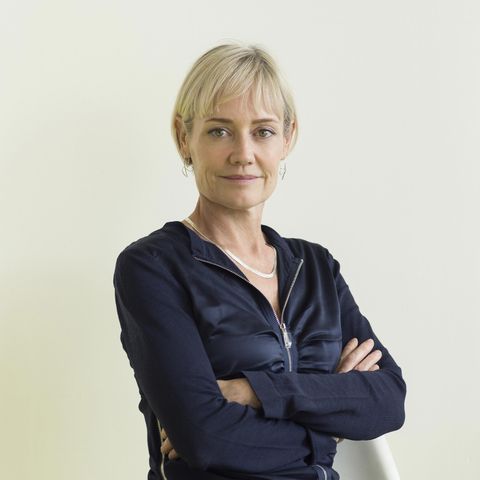Alison Brooks, founder of her own London-based practice, Alison Brooks Architects, ABA, is regarded as one of the leading architects of her generation, the only architect of the UK to have won all three of the RIBA awards. Born and grown up in Canada, she studied architecture at the University of Waterloo, and after graduating she decided to move to UK, where at the beginning she worked with the designer Ron Arad, becoming a partner in the firm. On this episode, she will share moments of this initial journey, from her collaboration with Arad until 1996, when she set up her own practice. Influenced by her pervious artistic experience, yet remaining, as part of her character, always very pragmatic and spatially concerned, she conceived the VXO private house, followed by a long series of other residences, Fold House, Wrap House, Mesh House to her most recent Windward House, each characterized by a strong identity and personality. Her biggest commitment as an architect is, as she likes to say, to ‘heal’ precarious conditions, outdated uses, spaces and meanings of public housing and urban areas, and this passionate concern has led her to realize generous residential developments, as the Ely Court, Accordia and Newhall Be, aiming to promote inclusiveness and social diversity. For this year’s Venice Biennale, she exhibited a beautiful, extremely scenographic stage, ‘Home Ground’, part of a long-term investigated and still open research about how housing defines the way we live together in cities, inviting the audience to share new conversations. Some of these themes and ambitions take on consistency and breathe in other projects as the Cohen Quad in Oxford for Exeter College, in the heart of the university neighborhood, and in several of her new, still on-going proposals as the Maggie Center, Cancer Caring Centre at Musgrove Park Hospital, Taunton. ‘Ideals then Ideas’, title of a monograph published in 2017, characterizes her architectural ‘ethos’, synthesizing her work’s aspirations. Authenticity, Generosity, Civicness and Beauty are the four ideals at the base of her gesture, an architecture of specificity, nurtured by social, political, cultural and artistic ideals, that doesn’t deny subjectivity.
mostra meno

